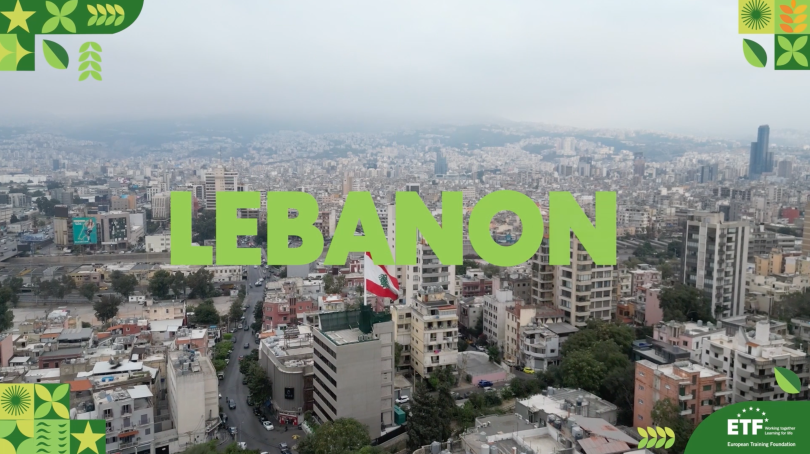
Green Skills Award 2023 finalist: Lebanon - Zero waste project
Education as an agent for change: Lebanon’s first 'zero waste' school
Lebanon has a waste problem. In the streets of the capital, Beirut, and towns and cities nearby, piles of garbage fester in the midday sun and metal dustbins are full to overflowing.
The unsightly streets reflect the lack of effective waste management plans, and the absence of the political will to cooperate between central and local government and communities to fix the problem. People are often left to deal with the polluting mess themselves. Sometimes NGOs try to tackle it, but their efforts remain limited.
Science teacher and researcher, Faten Sleem, believes education offers a key to raising awareness of the problem – and how it may be tackled through sustainable production and consumption. A teacher at the Aley Mixed Intermediate Public School near Mount Lebanon, a 20-minute drive from Beirut, Faten has set up the country’s first ‘zero waste’ school as the first step in raising a new eco-aware generation.
Her initiative ‘Empower Minds, Transform the Future’, is one of the 10 finalists in the European Training Foundation’s Green Skills Award 2023.
“Education is the key to solving the waste management problem in Lebanon,” Faten says. “By educating students on sustainable production and consumption, I hope to empower them to become agents of change and take responsibility for their own waste management practices.”
By demonstrating that her school can be the change needed to clean up Lebanon’s streets and promote sustainability, she hopes to influence other schools, organisations and communities to take the same path.
“I am aware that this project may seem daunting, but firmly believe that the largest projects start with small steps,” she adds.
Faten’s first step to create a 'zero waste' school was to get everyone involved on board. The fact that the school itself was surrounded by stinking piles of garbage gave both an urgency and clear mission to her project. She presented her idea to parents, teachers, governors and students, highlighting the urgent need to create a waste management plan that was designed to:
-
reduce waste across the school;
-
promote the use of reusable containers for students’ food and drinks by providing workshops and seminars on how to prepare meals that generate less waste;
-
work with local businesses and parents to promote sustainable production and consumption; and
-
encourage the use of digital platforms for waste reduction assignments and communication, thus saving paper.
Faten got everyone on board, creating a sense of shared ownership of the project. Students prepared awareness-raising brochures; designed paper bags adorned with strong environmental messages – distributing them to shops, restaurants and bookshops to highlight the dangers of plastic bags to the environment; and even arranged to supply farmers with free organic waste for composting to promote sustainable agricultural practices. Paper collections were delivered to NGOs involved in recycling, and a partnership was set up with a local detergents factory to provide reusable containers for its products.
The success of the project was firmly based on a methodical approach that included the approval from the school’s administration, ensuring it received the necessary support and resources; training sessions for teachers and staff; setting up a student-led waste management committee; and integrating the waste management plan into the curriculum in subjects including science, social studies and arts.
Faten believes the 'zero waste' school can create “lasting behavioural change among students, staff, and the wider community”.
“By implementing the waste reduction programme, the school was able to demonstrate its commitment to sustainability and promote sustainable behaviour among stakeholders,” she says.
The network that grew out of the project will create a wave affect, impacting others and spreading sustainable behaviour.
The results so far have been impressive – less waste and more composting, recycling and reduction of single-use plastics. The school has a lower carbon footprint, sustainable behaviours are being promoted, leadership and teamwork skills in students are developing, and the entire community feels involved.
The project has had a positive impact on the school community, both in terms of environmental sustainability and personal development. By promoting sustainable practices and developing leadership and teamwork skills, the project has helped to create a more responsible and eco-conscious community.
“We envision a society where individuals are equipped with the knowledge and skills necessary to make informed choices and take proactive measures to protect the environment,” Faten adds.
Did you like this article? If you would like to be notified when new content like this is published, subscribe to receive our email alerts.